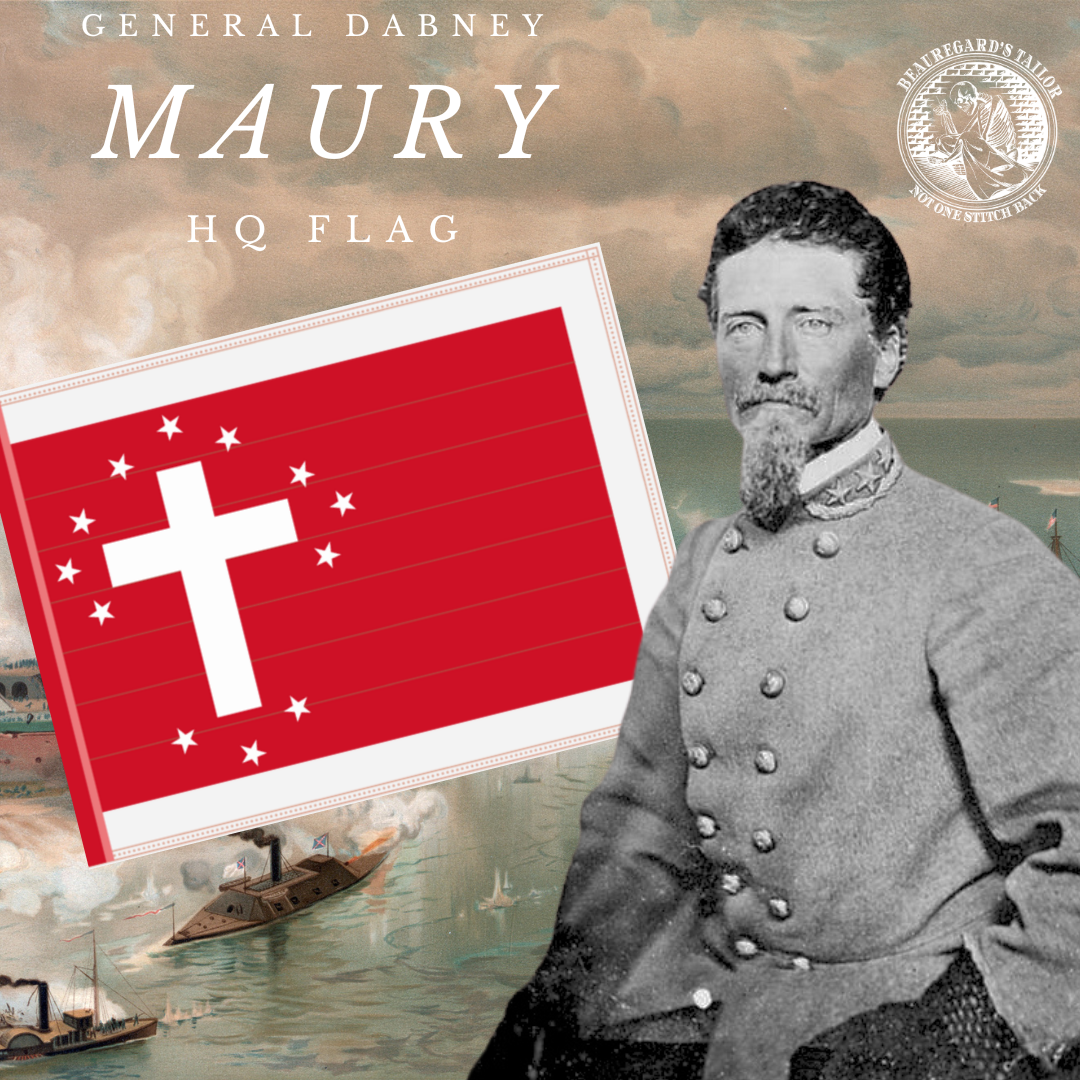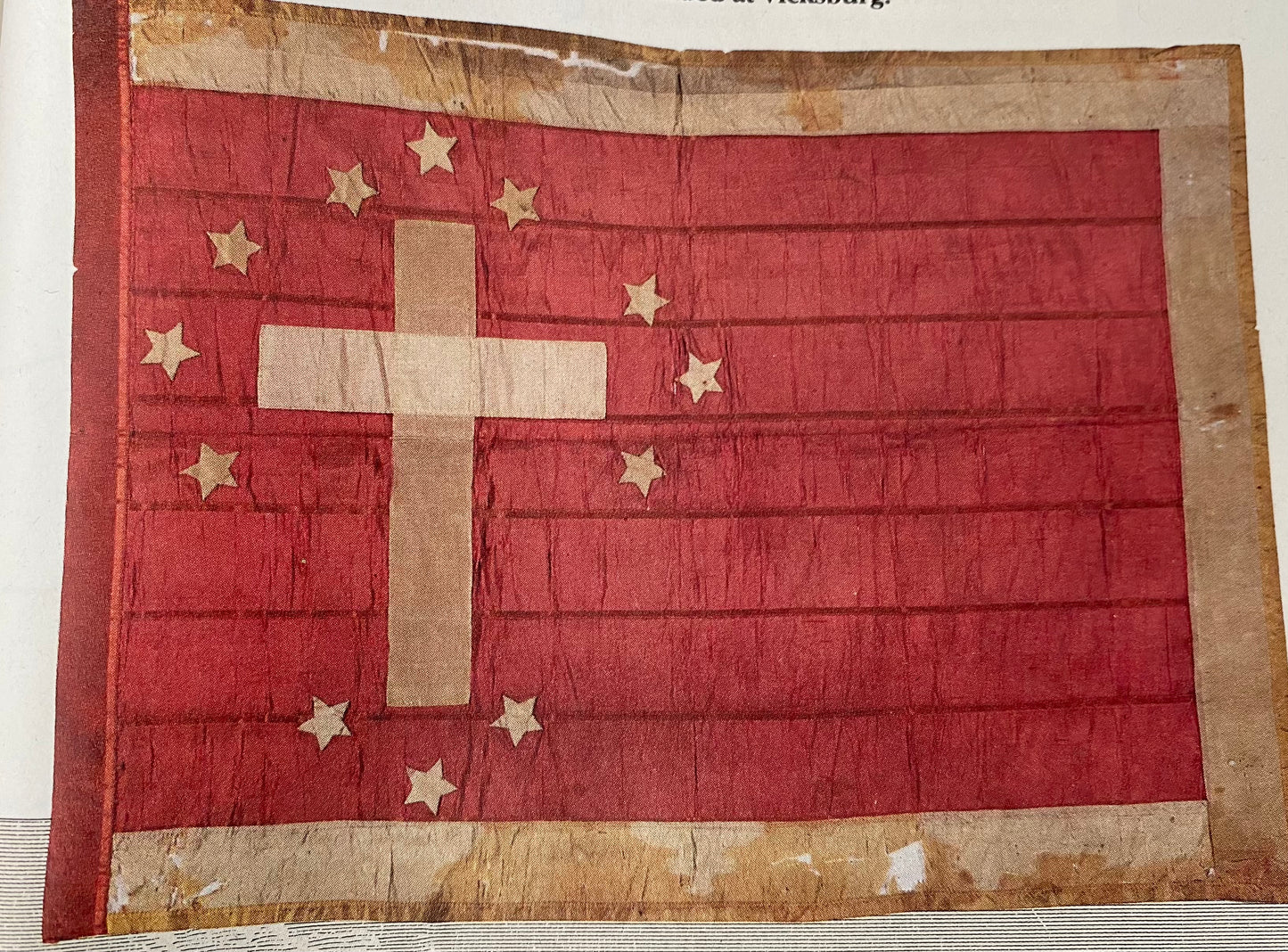Beauregard's Tailor
General Dabney Maury Flag Stickers/Magnet
General Dabney Maury Flag Stickers/Magnet
Couldn't load pickup availability
Design based on the flag used by General Dabney Maury.
Each purchase comes with three stickers or one magnet.
Historical Background:
General Maury 's career in the Confederate army is history.
The niche assigned him in the temple of fame is a high one. It is in more than one respect unique. A distinguished soldier of the Confederacy remarked to the writer recently, that had General Maury achieved in the East the things which he achieved in the Army of the West, his final rank would have been higher and his fame greater.
As it is, he is known to the student of Confederate history as one of the bravest, one of the most skillful, and one of the hardest fighters in the Southern army. His heroic defence of Mobile, in the spring of 1865, against the land attack of Canby and the attack of the great Farragut by sea, is alone sufficient to give him a lasting place in history.
General Johnston and General Maury were old army comrades and warmest friends, but General Johnston felt he had been improperly treated in having General Lee assign officers to his army. He claimed to outrank Lee. General Maury was much embarrassed by the view which General Johnston took of General Lee's action, and, with the former's permission, returned to Richmond and requested assignment elsewhere. General Johnston, after General Maury returned to Richmond, wrote to Mr. Davis, protesting against the injustice of General Lee's action and the then existing state of affairs. He said he would raise no protest until after the achievement of the independence of the Confederacy, when he would use all proper means to have his rank rightfully established. The gauntlet thus thrown down was accepted by Mr. Davis. General Maury always said this caused the ultimate removal of Johnston from the command of the Army of the Tennessee, and, as many thought, the downfall of the Confederacy.
General Maury's request for a different post was answered with an assignment to the Army of Fredericksburg, under General Holmes, at Brooke's Station. After the victory of Manassas, both armies lay quiescent for many months. General Maury had had no opportunity for active service when, in February, 1862, he was made chief of staff to General Earle Van Dorn, in command of the Trans-Mississippi Department. This distinguished honor illustrates the confidence reposed in General Maury at headquarters in Richmond.
It is impossible to go into detail regarding the career of General Maury in the Confederate army. It is interwoven with the history of the great men who led the Southern armies in the West—with the great Albert Sidney Johnston; with Forrest, the unique and wonderful; the brilliant, but unfortunate, Van Dorn; with Leonidas Polk, the "Fighting Bishop"; with Stephen D. Lee—with a dozen other men whose names are famous in the history of the greatest war of the world.
General Maury was promoted to the rank of brigadier-general for conduct in the Alcorn campaign. His first command in the field was of the famous Missouri brigade, at Corinth, and in the affair at Farmington. On the evacuation of Corinth, May 31, 1862, he was assigned to command the rear guard of the Army of the West. The next day he was assigned to the command of the First division of that army, with which he subsequently fought at Iuka, Corinth, Hatchie-Bridge and Vicksburg. Maury's division of the Army of the West went into action at Corinth 4,600 strong, on October 4, 1862. After three days of fighting, it was reduced to 1,200 men, who held Ord's corps in check, repulsing every attack from 9 A. M. to 3 P. M., and saved Van Dorn's army and trains.
In April, 1863, General Maury was ordered to take command of the Department of East Tennessee. While in this command he received a dispatch to this effect: "General Van Dorn was killed here to-day. Representing the wishes of his whole corps of cavalry, we desire to know if you will accept its command." This was signed by all the generals, including Governor Ross, of Texas, and General Frank Armstrong. This, the highest compliment ever paid General Maury, he found proper to decline.
Soon afterwards he was transferred to the Department of the Gulf, which he defended until the battle of Mobile closed the war between the States, on April 12th. The fighting began March 26, 1865, against Canby's army of three corps of infantry, a heavy force of artillery, and Farragut's fleet. General Maury conducted the defence with great skill, destroying twelve of Farragut's vessels.
On the 12th of April, pursuant to his orders from General Lee, General Maury marched out the remnant of his little army, now reduced to a division of 4,500 men. As he marched out with the rear guard, a flag of truce was sent out to the fleet, to apprise the enemy that he might enter Mobile, without firing a shot into the town. On the 14th of May, he and his army were paroled.
Share




